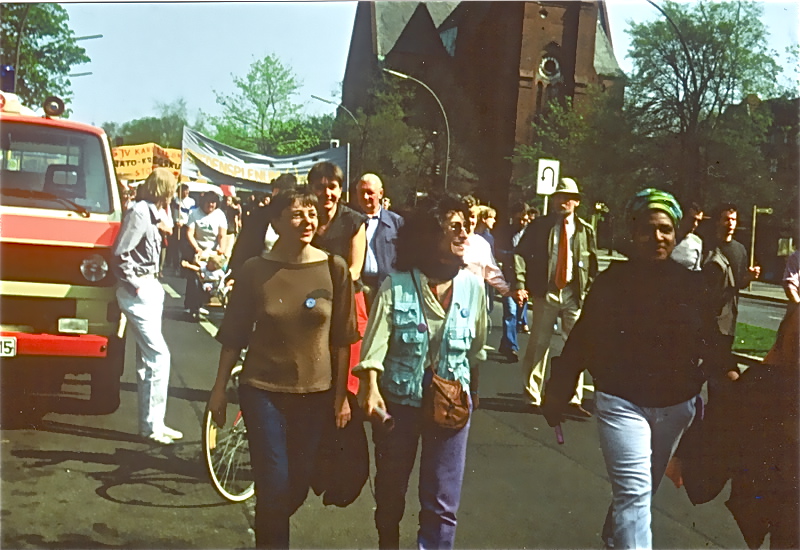
Audre Lorde was always active…marching in a Berlin demonstration, with a friend (left) Rakibe Tolgay
Dear
friends,
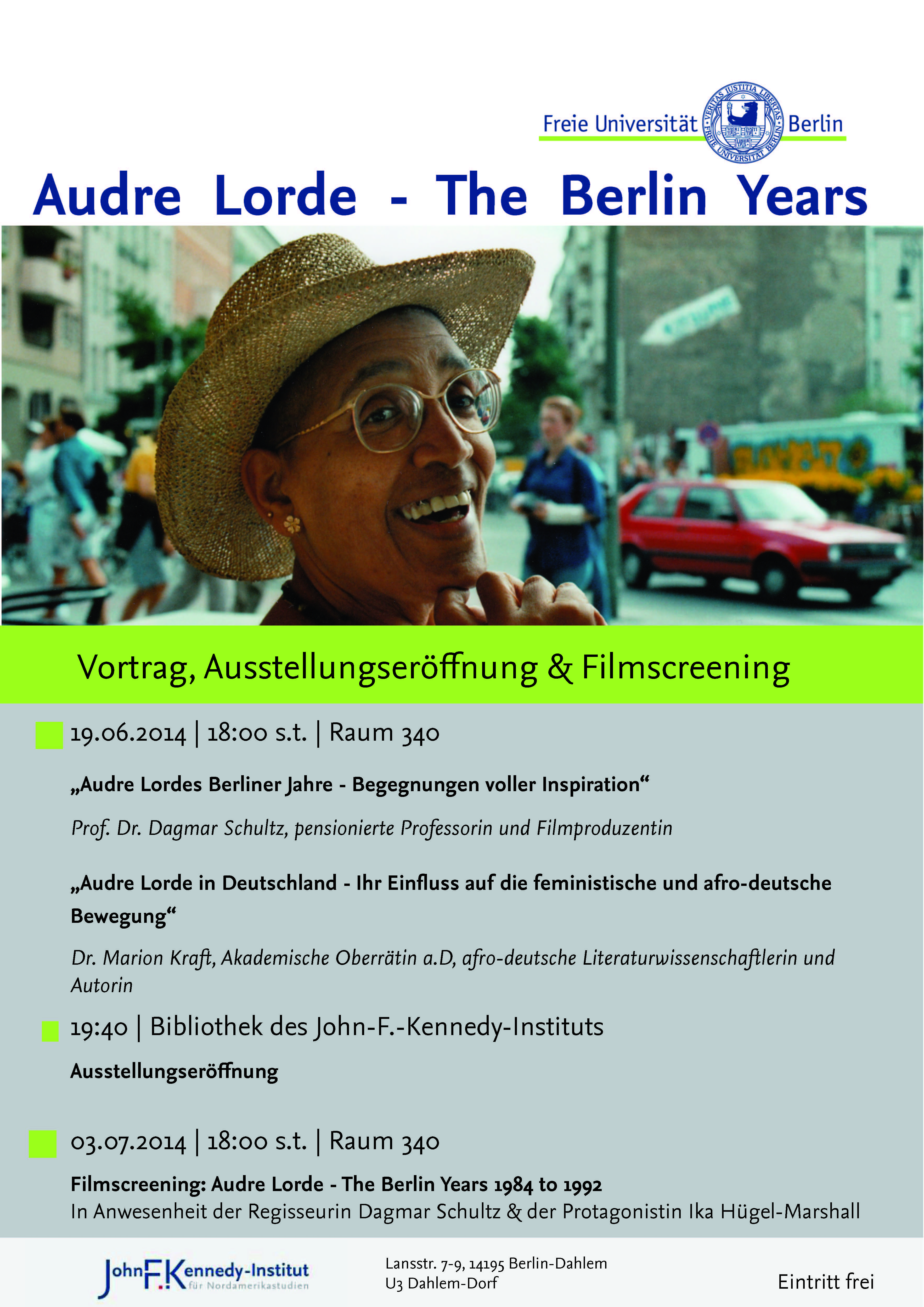 it
is amazing to realize that Audre Lorde’s passing to the ancestral world was 22 years ago
on November 17, yet her spirit and her legacy are so alive among so many people. This is
what we keep experiencing again and again with the film Audre
Lorde – The Berlin Years 1984 to 1992.
it
is amazing to realize that Audre Lorde’s passing to the ancestral world was 22 years ago
on November 17, yet her spirit and her legacy are so alive among so many people. This is
what we keep experiencing again and again with the film Audre
Lorde – The Berlin Years 1984 to 1992.
Since our last newsletter in June the film has
continued traveling the world. In Germany we had nine screenings with very diverse
audiences, most attended by protagonists from the film. To give some examples:
- Judy Gummich, co-founder of ADEFRA, the Afro-german women’s organization, discussed the film at the Festival Contre le Racisme in Bremen,
- Abenaa Adomako and Ika Hügel-Marshall led the discussion with me at the screening at the Schwules Museum (Gay Museum) in Berlin, where the film was shown as part of an evening focused on the situation of lesbians in South Africa, that also included the visit of Zanele Muholi with her photos and her film Difficult Love.
- At the Humboldt Universität we presented to a group of students from different U.S. universities, visiting Berlin through an Antioch University program.
- The film was screened at the the John-F.-Kennedy Institute of Northamerican Studies at the Free University of Berlin, where Audre taught in 1984. Dr. Marion Kraft and I gave talks there on the day of the reception for the photo exhibit of my photos of Audre, introduced by Dr. Rehse, from the Free University.
- In November, Ika
Hügel-Marshall presented the film at the day-long
event Black Diaspora in Berlin to an enthusiastic audience of primarily black
people.
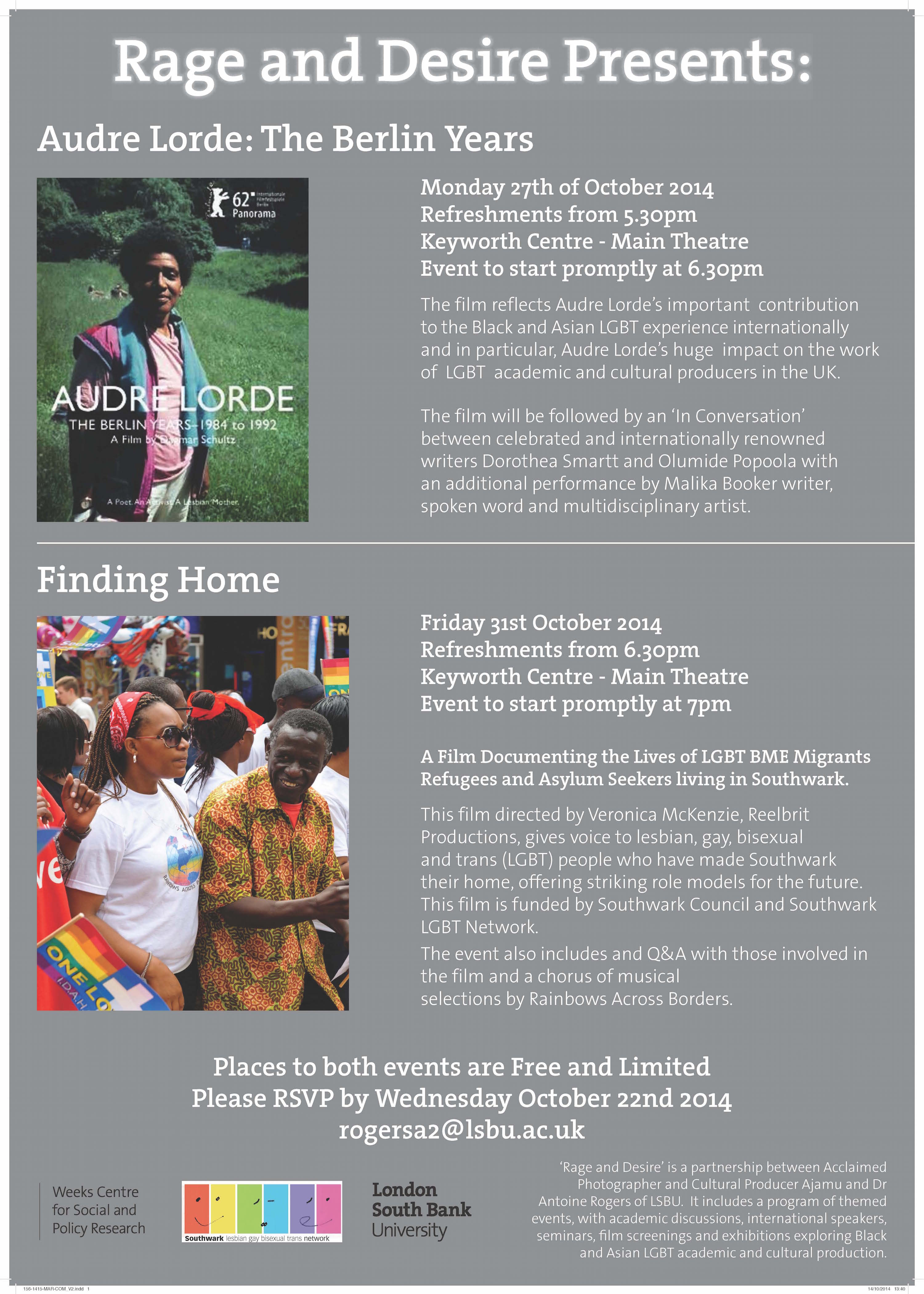 On
the international level the film was in the US at the Kansas City LGBT Film
Festival and in Helsinki, Finland at an antiracism
event organized by the city of Helsinki. In the United Kingdom it was
shown as part of the Black History Month in in Sheffield and at London South
Bank University’s annual Rage and Desire program featuring cultural,
artistic and political work. Reactions from the organizer in Sheffield:
On
the international level the film was in the US at the Kansas City LGBT Film
Festival and in Helsinki, Finland at an antiracism
event organized by the city of Helsinki. In the United Kingdom it was
shown as part of the Black History Month in in Sheffield and at London South
Bank University’s annual Rage and Desire program featuring cultural,
artistic and political work. Reactions from the organizer in Sheffield:
“Screening went really well, thanks! We had a good audience in and a fantastic introduction by a local post-graduate student.“ ~ Joan Parsons
In London renowned poet Dorothea Smartt and Black German london-based author Olumide Popoola led the discussion.
“The event went very well...those who attended seem to have had a great experience...folks really enjoyed the film and the discussion that followed.” ~ Dr. Antoine Rogers
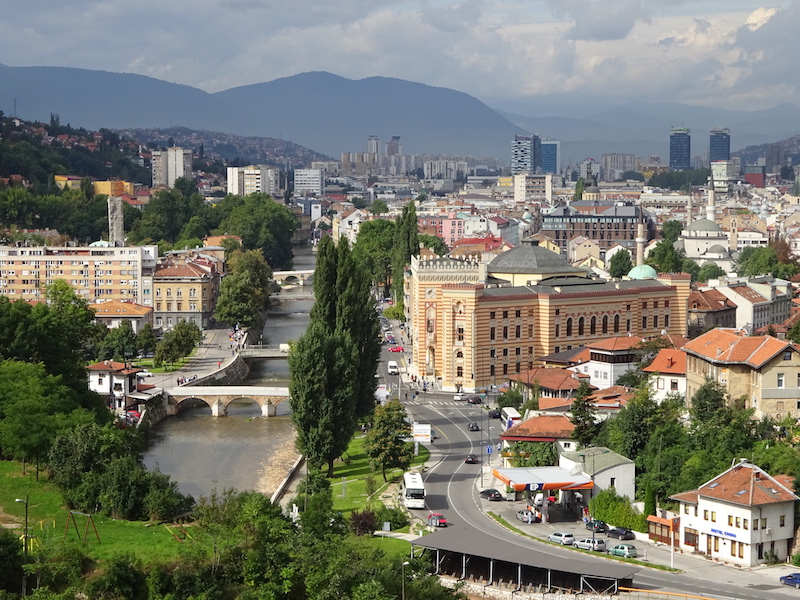 |
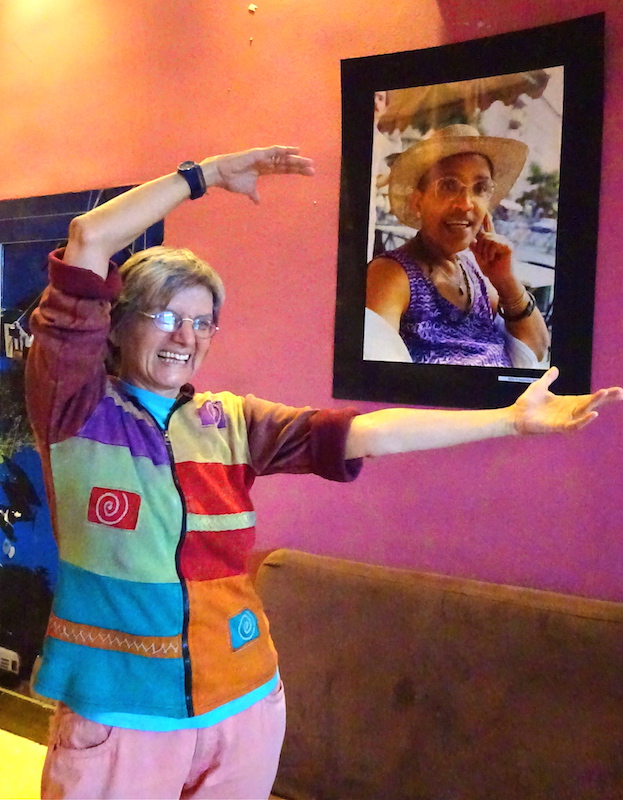 |
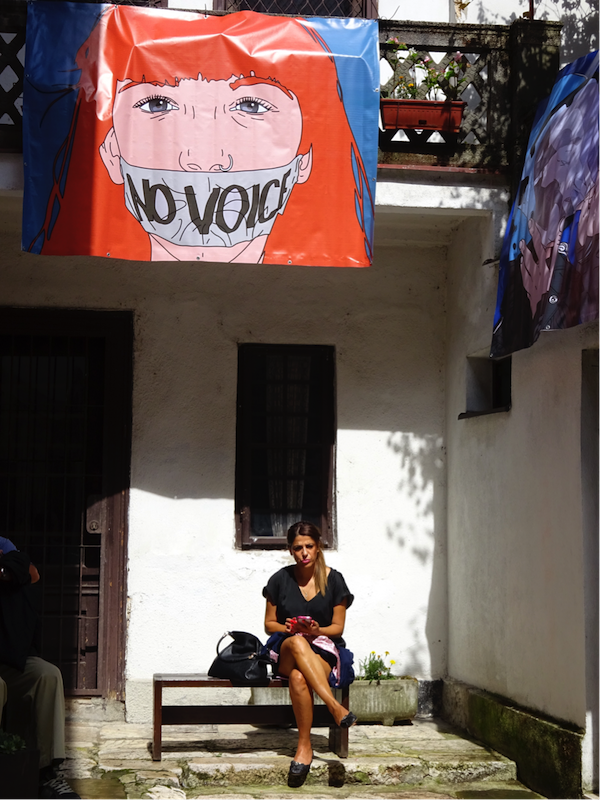 |
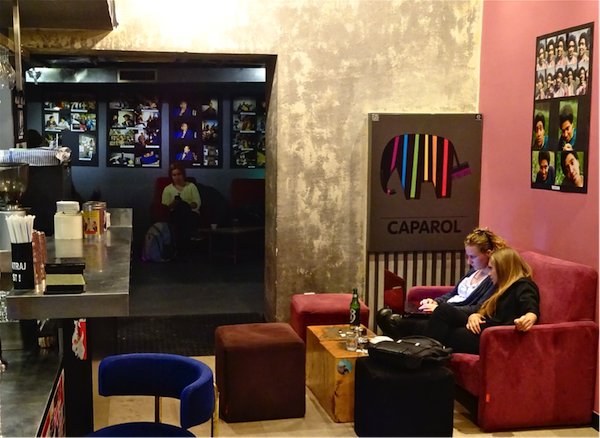 |
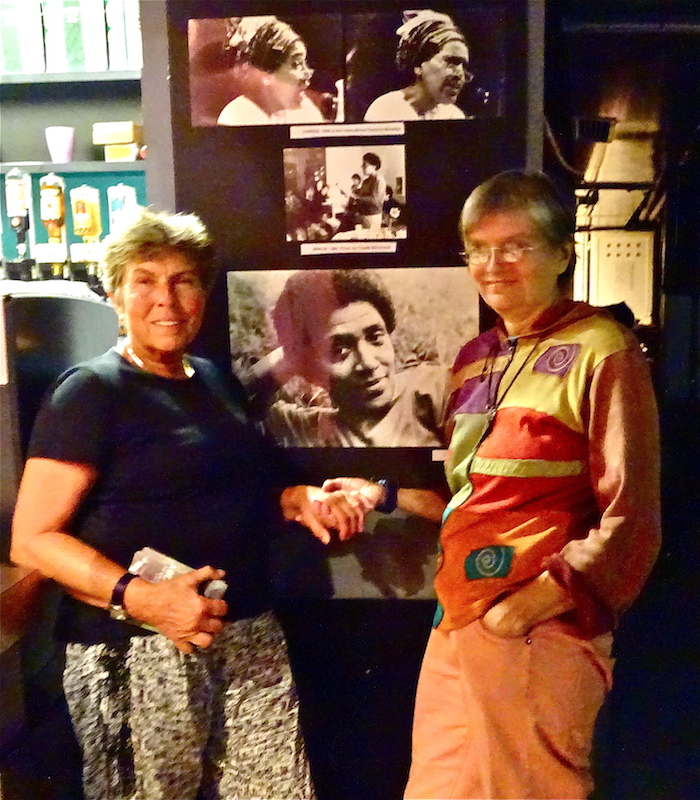 |
Above: City
of Sarajevo, Below: Dagmar and Lepa
Mladjenovic photos
© Dagmar Schultz |
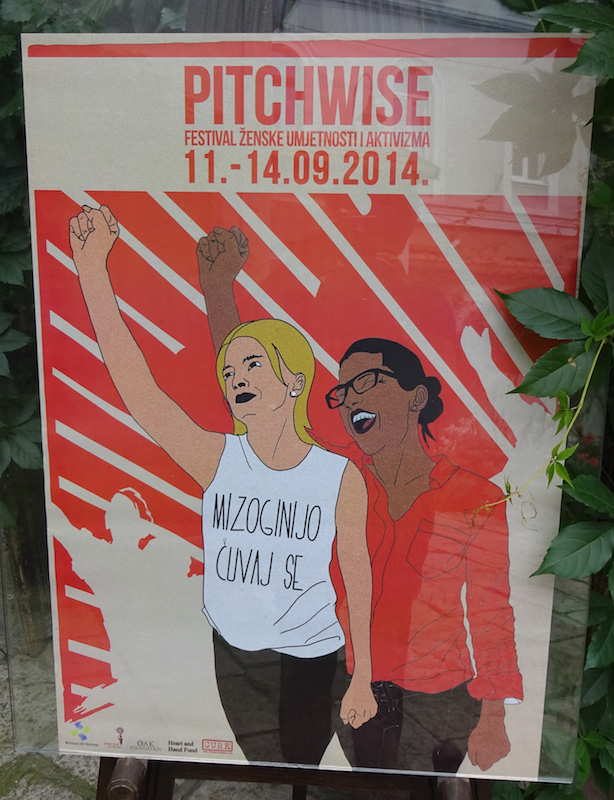 |
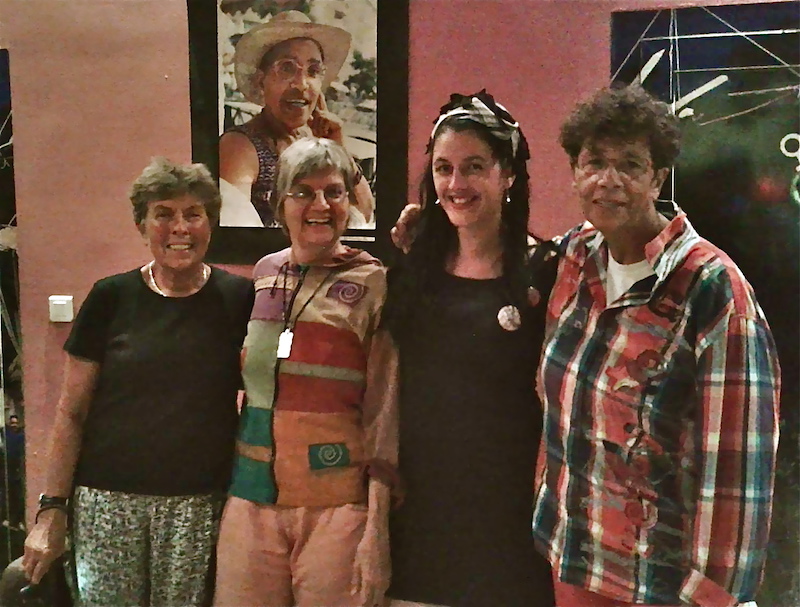 |
Highlights of these months were screenings
in Sarajevo, Bosnia and in Vancouver, Canada. In Sarajevo, women from the six
regions of ex-Jugoslavia met for the 9th PitchWise: Festival of Women Arts
and Activism from 11- 14 September 2014.
The festival brings together artists, theorists, feminists and all those interested in women's rights in Bosnia & Herzegovina and the region. The main theme of the PitchWise 2014 was “Waves of feminism—woman’s history and feministic heritage in the 21st century,” and the motto “Misogyny, step back!”
More than 50 female artists, musicians, theoreticians, workshop leaders, writers and feminist activists from B&H, Serbia, Montenegro, Croatia, Slovenia and Kosovo, including about 20 Roma women, and from Mexico, Germany, Sweden, Great Britain and Lebanon presented their works and exchanged their political experiences. Ika Hügel-Marshall, co-author of the film script, and who also appeared in the film, attended the festival with me. which also included a screening and the exhibit of my photos of Audre Lorde.
We had a chance to hear and see accounts of the genocide in Srebenica and of the siege of Sarajevo by Serbs, which lasted from 1992 to 1996, in the Museum of Genocide. Meeting the young and widely renowned artist Adela Jusic, who had lived through the siege as a girl, made the images so much more real.
Reactions to our film reflected its significance to people from a war-stricken country:
-
“What is important is the issue of trauma. There is not only racism and homophobia, but there is this horrible war in Bosnia-Herzegovina, and the four-year siege of Sarajevo. It is very important that this trauma becomes socially transparent like issues of gender identity and lesbian existence…. This movie opens up all these layers.“ (Lepa Mladjenovic)
-
“There is one sentence in the film…it goes something like this: It is not altruistic: it is the most important thing when you understand you have to speak up about who you are – both for all of those who were traumatized, because war is a collective trauma, and for ourselves, because if I suppress it , it grows and my anger gets bigger. Audre was speaking about her personal experience, and because of that, she connected with all the people she met.“ (young activist in Sarajevo)
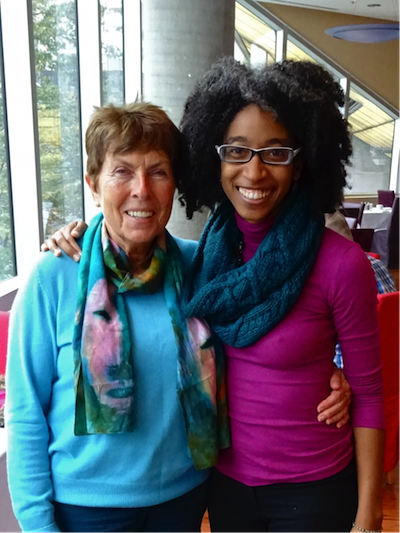 |
Dagmar and Dr. Alexis Pauline Gumbs. |
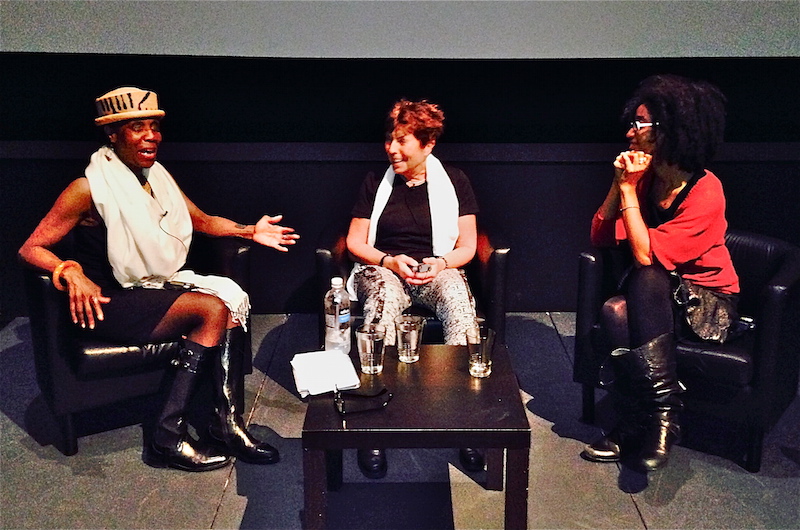 |
In Vancouver the film was screened by the University of British Columbia at a downtown theater. Dr. Annette Henry, professor at the University of British Columbia led the discussion with me and with Dr. Alexis Pauline Gumbs, who had given a talk on Audre Lorde the day before.
Again the film received some very enthusiastic responses. Poet and artist Fabiola Bahiyya Nabil Naguib wrote:
“Thank you for your loving tribute to Audre's life, work and loved ones - those she touched and those that clearly touched her. Your film is such a contribution to legacy, the legacy of witnessing, sharing, gathering, re/membering and loving!”
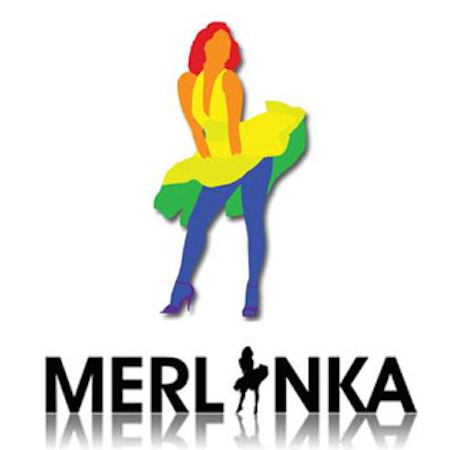 Finally,
on December 16 the film will be presented at the Merlinka International Queer Film
Festival in Belgrade, Serbia. Dagmar Schultz will be present for a round table organized
by Lepa Mladjenovic on “Multiple discrimination of lesbians and gay
men” after the film.
Finally,
on December 16 the film will be presented at the Merlinka International Queer Film
Festival in Belgrade, Serbia. Dagmar Schultz will be present for a round table organized
by Lepa Mladjenovic on “Multiple discrimination of lesbians and gay
men” after the film.
See also the article by Dagmar Schultz, The Reception of Audre Lorde - The Berlin Years 1984-1992 Voice from around the World," in the Feminist Wire.
The DVD has over 70 minutes of extra material, including Audre reading her poetry and reflecting on her literary work. In addition to Facebook and Twitter we have a YouTube channel with clips from discussions and interviews made by director Dagmar Schultz during tours in Hawaii, throughout the US, Canada, the UK, Bosnia-Herzegovina, and Germany. Take a moment to listen to a most diverse group voice their experiences, inspiration and renewed motivation to action after a viewing.
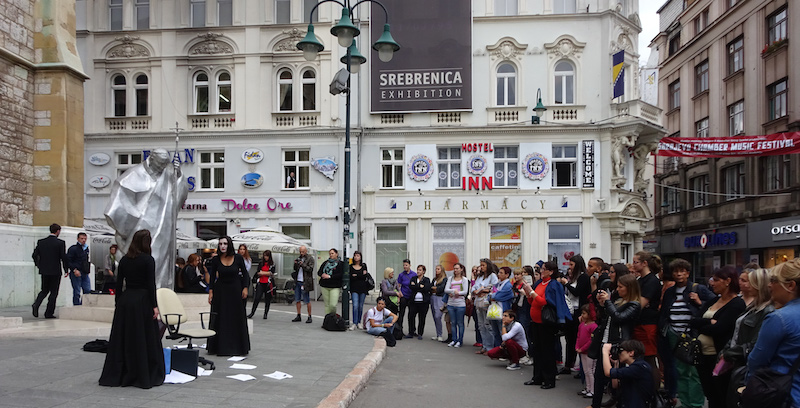 |
Street theater of the festival in front of the Cathedral. In the background the poster of the Srebenica exhibit. © Dagmar Schultz |
Keep up to date via FaceBook. By now the film has been screened in 64 festivals and has received five awards (!) as well as at over 135 screenings around the world! We want the film Audre Lorde - The Berlin Years, 1984 to1992 to continue its amazing journey. We want many more people to have the chance to be touched and empowered by Audre Lorde.
Please introduce the film to friends, colleagues, groups and organizations; get institutions to order the DVD; encourage teachers to use it in their classes (a Study Guide is on the web site (also in German).
![]()
![]() We
wish you a wonderful holiday and a smooth transition into a year that hopefully will
bring more insight and less violence and suffering!
We
wish you a wonderful holiday and a smooth transition into a year that hopefully will
bring more insight and less violence and suffering!
Dagmar and the film team and JB from Draga Design
- “In our work and in our living, we must recognize that difference is a reason for celebration and growth, rather than a reason for destruction.” ~Audre Lorde
- “We must be the change we wish to see in the world.” ~Audre
Lorde
- “Each time you love, love as deeply as if it were forever. Only, nothing is eternal.”~ Audre Lorde
Click HERE to
purchase your North American DVD (NTSC) today.
Click HERE for
the film’s Press Kit
The European DVD (PAL) is available from www.jcp.de. The DVD is in English with subtitles in German, French and Spanish. Orders from outside Europe and the United States must be placed directly with the producer Dagmar Schultz.
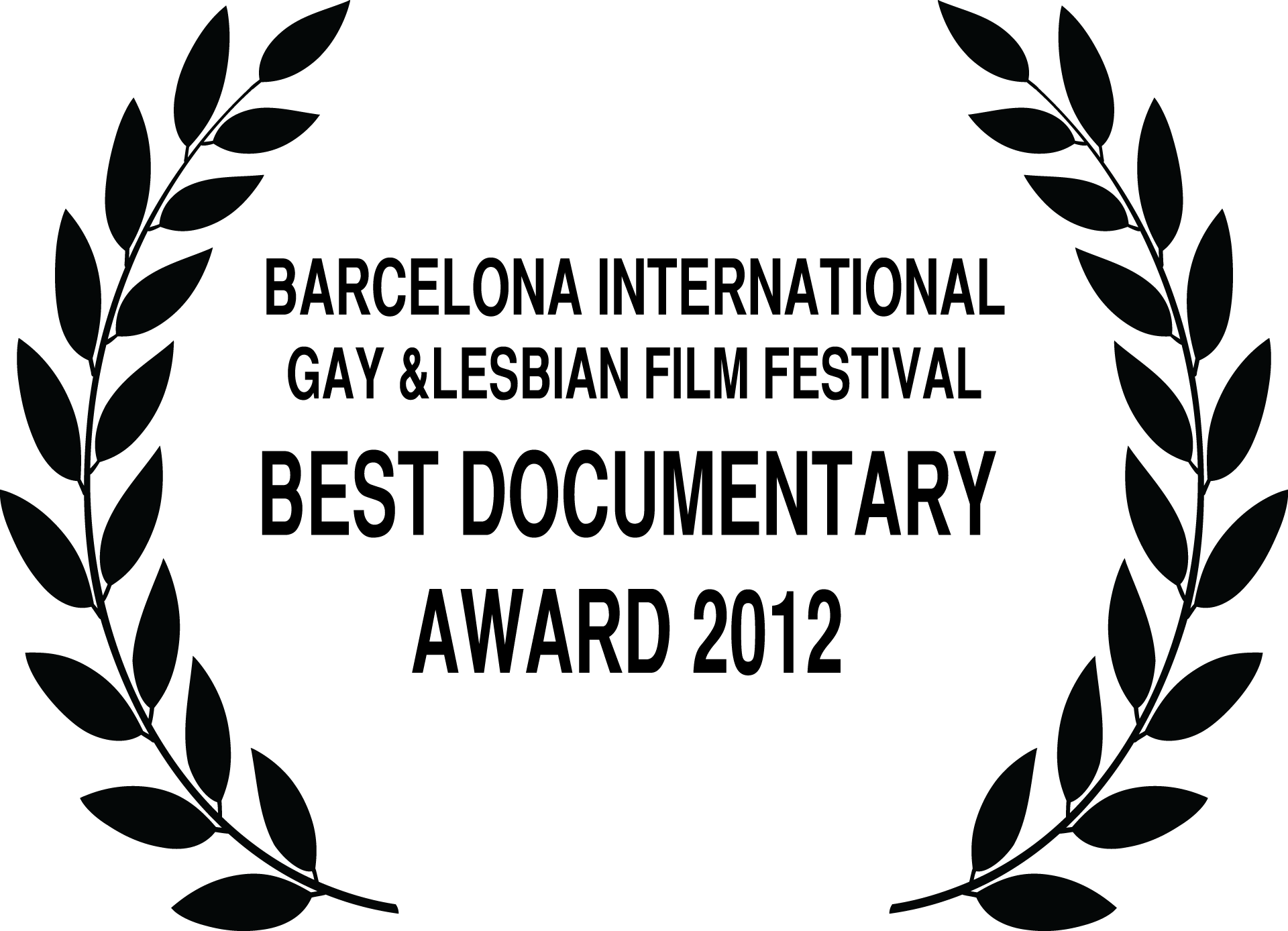 |
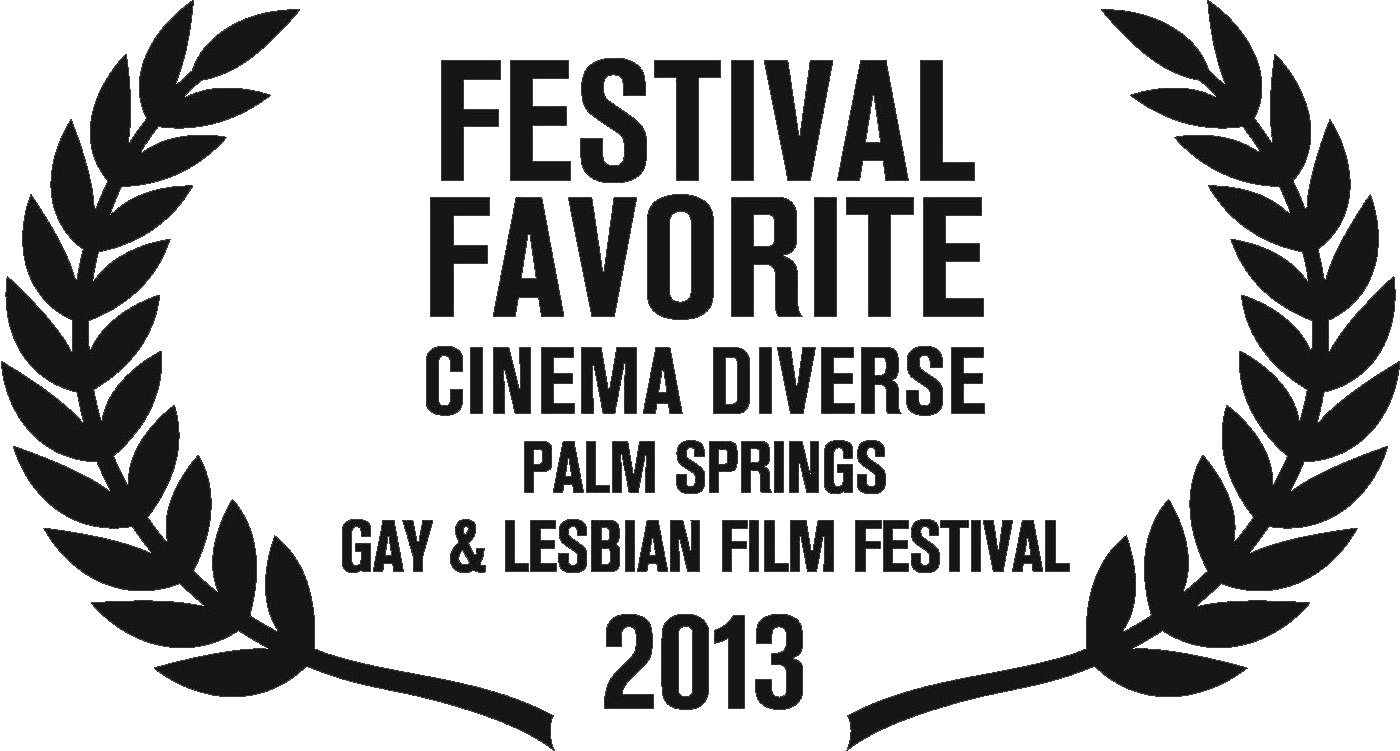 |
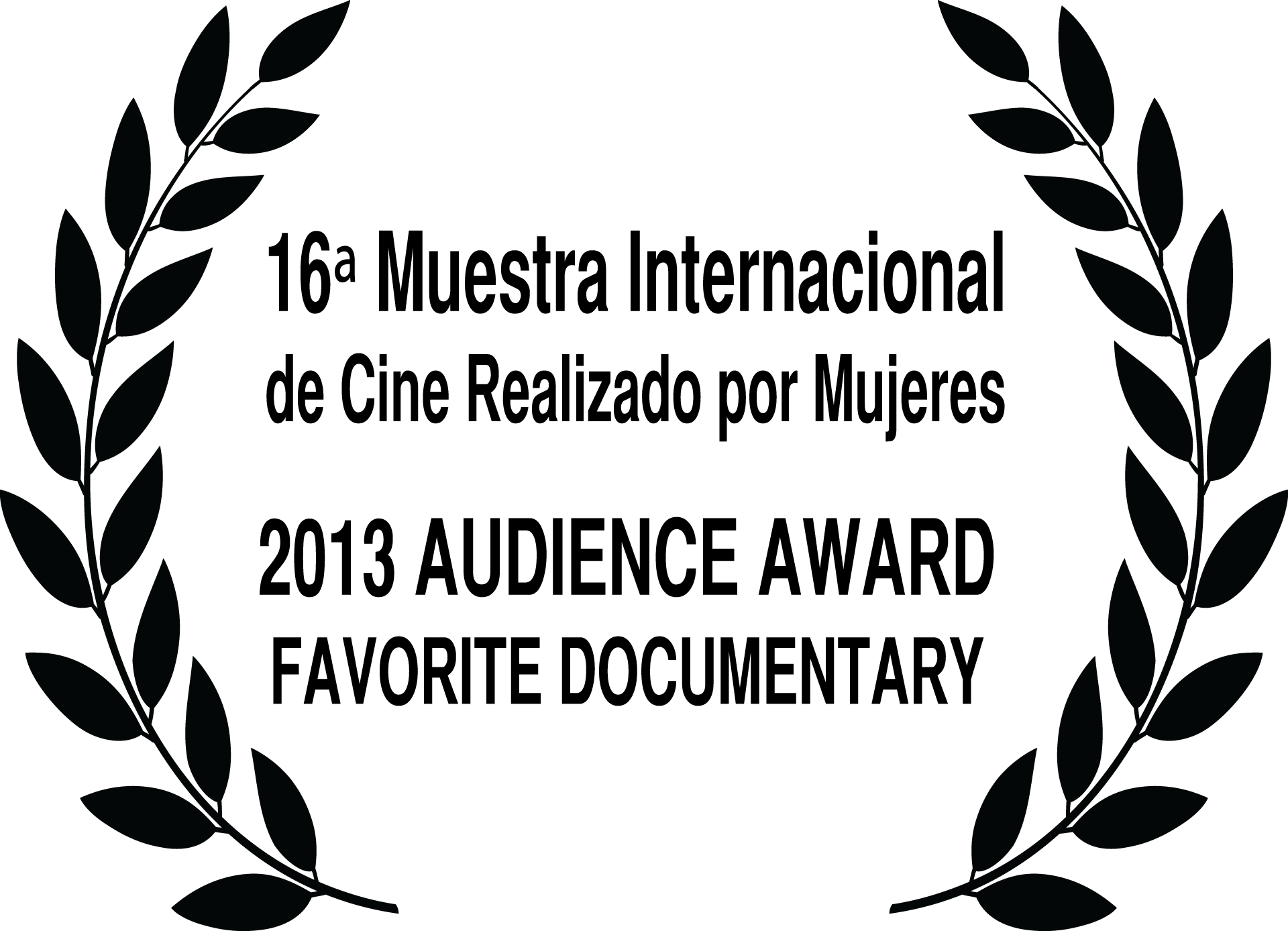 |
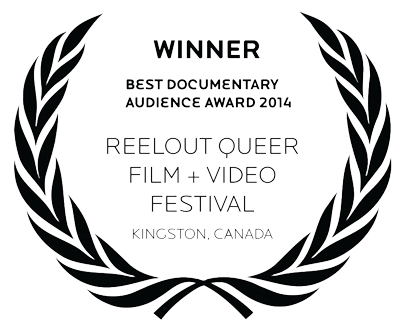 |
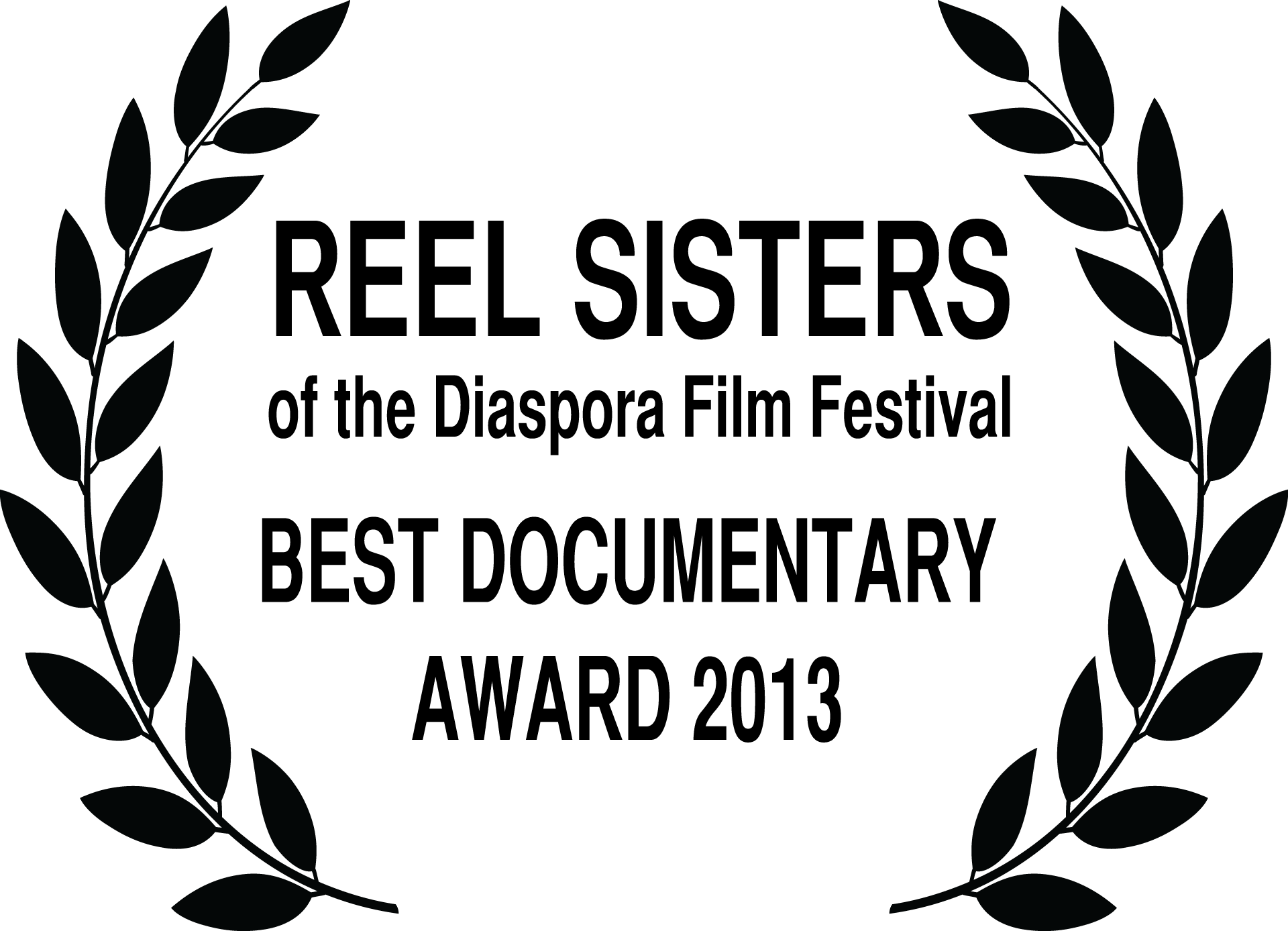 |